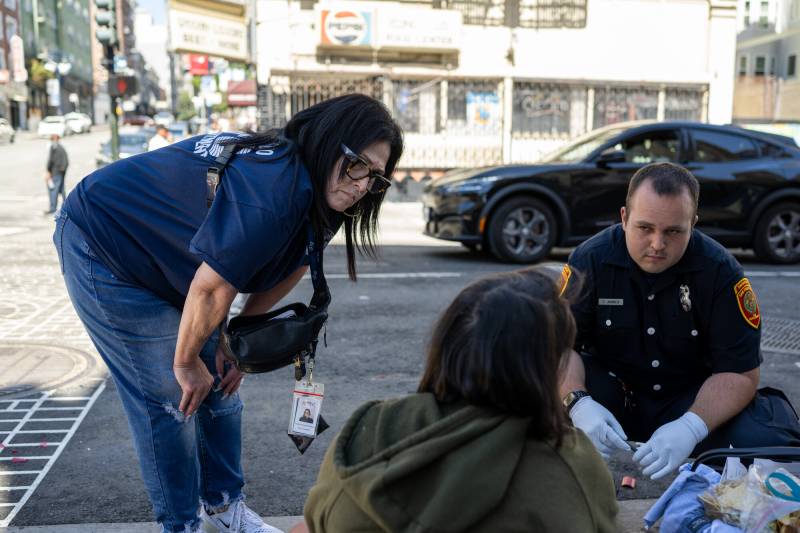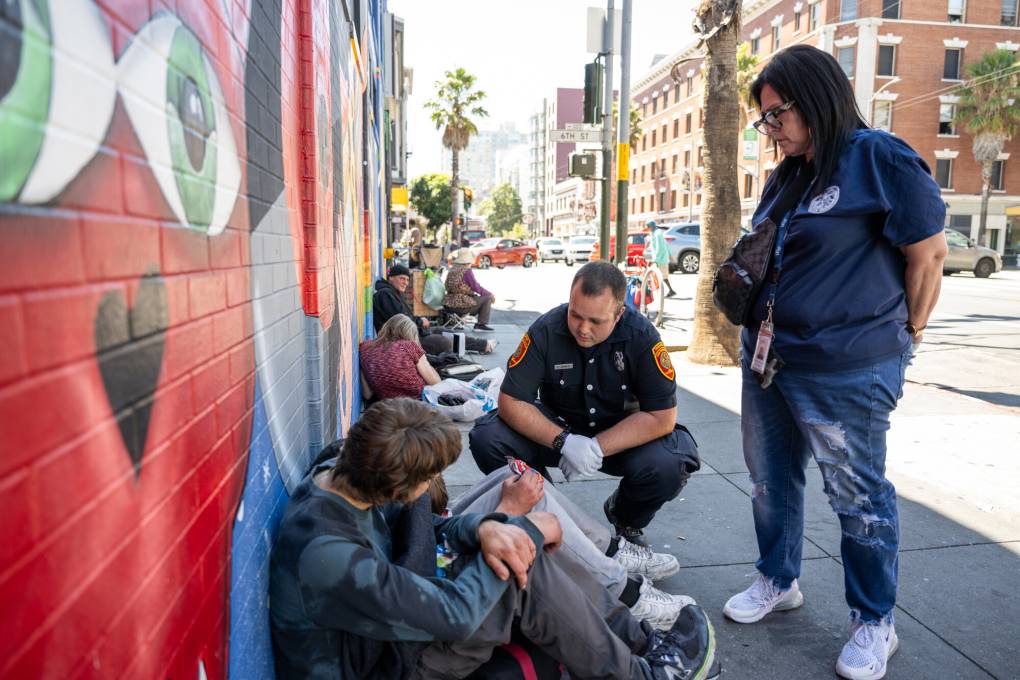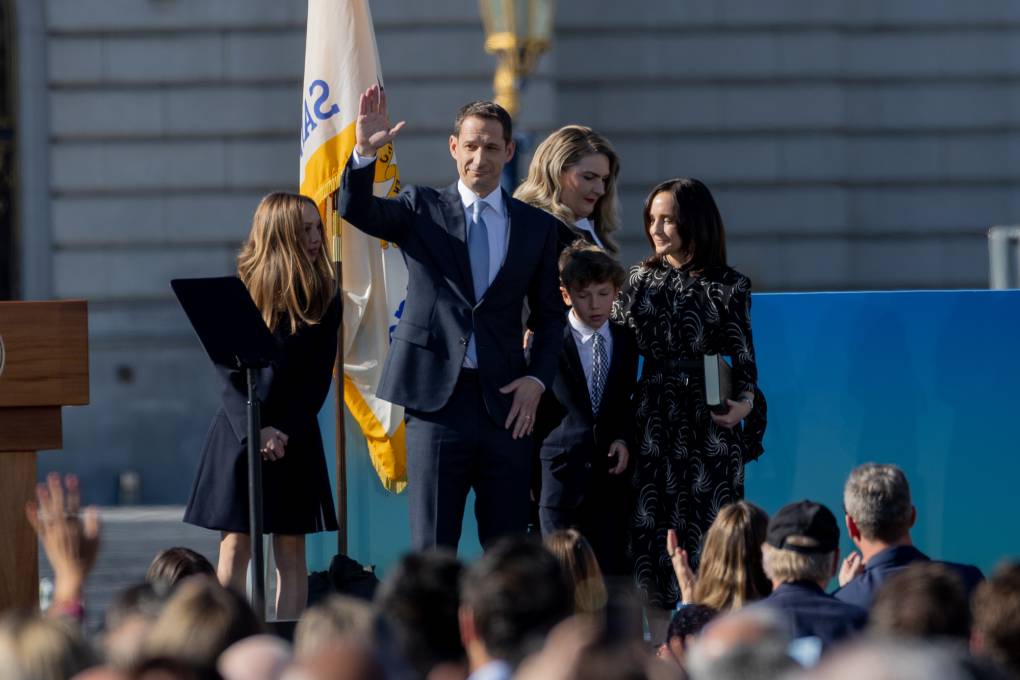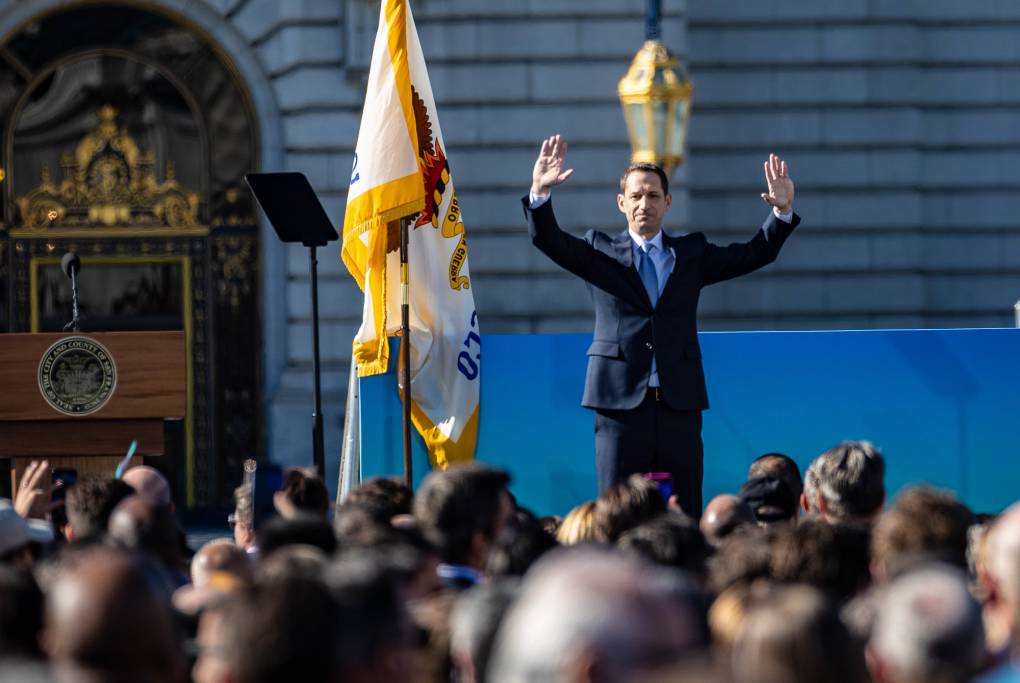Laura Guzman, director of the National Harm Reduction Coalition, which works with the city to distribute Narcan and other harm reduction efforts, said that many of the candidates’ platforms simply expand the city’s existing recent approach to overdoses.
“This punishment approach that seeks to correct or make people believe that this will address people with substance use needs is absolutely false, and the fact that we don’t have the kind of treatment that is needed in jail, people could get more sick or even die,” Guzman said. “The same candidates with these platforms are the same candidates whose platforms criminalize unhoused people and poor people in general.”
What’s more, San Francisco still lacks enough treatment options for people who want to change their drug use. First responders issue thousands of Narcan doses a year, according to city data, and respond to dozens of overdose-related calls per week.
“It’s maddening,” Kral said. “We don’t have anywhere close to enough treatment in San Francisco for all the people who actually want it.”
Incumbent Mayor London Breed said the issue is personal for her. Her sister died of a drug overdose, and she’s had to lead the city through the fentanyl crisis, which other major cities across the country have also struggled to contain. As mayor, Breed has opened 394 residential care and treatment beds since 2020, pushed for increased methadone and buprenorphine medication treatments, and city data shows admissions to residential treatment were up 9% during the first six months of 2024 compared to the same time period last year.
In 2021, Breed declared an emergency order to address drugs and overdoses in the Tenderloin neighborhood, which involved creating the city’s first publicly-run overdose prevention center. However, it closed after seven months following criticism from the local business community and ongoing legal challenges at the state and federal level.
This year, she has echoed some of her opponents’ sentiments that harm reduction has gone too far — even as the city’s jails are growing overwhelmed with people struggling with substance use disorder. In March, voters approved a controversial ballot measure, sponsored by Breed, that requires welfare recipients to undergo drug screening and participate in free treatment if they are using drugs.
At a recent mayoral debate, Breed said, “We’re making arrests of dealers. We’re making arrests of users. We’re getting them into treatment, and we’re making more investments in recovery.” In a statement to KQED, she later added: “While I have been a proponent of safe consumption sites, we need to take a different approach now that reflects the lethal introduction of fentanyl.”
Drug addiction counselors and therapists working on the frontlines of the overdose crisis say that their work has become increasingly politicized during the current election cycle, making it harder to secure funding and continue their practice.
Maurice Byrd, a therapist and director of training and business operations at the Harm Reduction Center, said, “Breed started off with a position that was really harm reduction focused.”
“She did seem to implement some things that were really radical, and that helped lower overdose rates,” Byrd said. “Then she got some blowback. I think that’s why this became very political.”
Supervisor Ahsha Safaí — who recently formed an unlikely ranked-choice voting alliance with Farrell — is the only candidate openly calling for overdose prevention centers. At the same time, Safaí is calling for greater law enforcement to arrest drug dealers and wants to expand the city’s abstinence-based recovery options.
“We have to have overdose prevention sites, and we have to expand the number of beds people can get into to fully recover,” Safai told KQED.




